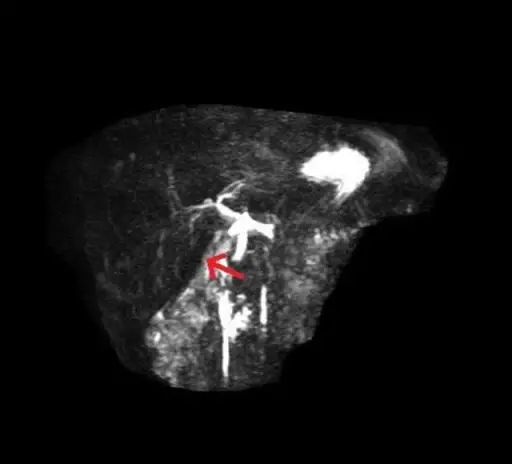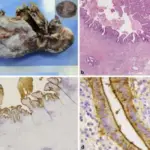Absent gallbladder is the developmental abnormality of the gallbladder and it’s relatively rare.
What is the Pathology of Absent Gallbladder?
The pathology of the absent gallbladder is:
-Etiology: The cause of absent gallbladder is, most often, sporadic and there’s the possible existence of hereditary forms. It has been reported that it’s associated with congenital syndromes, trisomy 18, and with congenital malformations caused by thalidomide.
-Pathogenesis: The sequence of events that lead to an absent gallbladder is that it results from failure of the cystic bud to develop in utero.
-Morphology: The morphology associated with the absent gallbladder is an absence of the gallbladder.
How does Absent Gallbladder Present?
Patients with absent gallbladder typically are either male or female present at the age range of both children and adults, with a median age of 46 years. The symptoms, features, and clinical findings associated with absent gallbladder include that although often asymptomatic, the agenesis of the gallbladder can present symptoms, such as dyspepsia, abdominal pain, nausea, and vomiting, or intolerance to fatty foods.
How is Absent Gallbladder Diagnosed?
Absent gallbladder is diagnosed utilizing imaging or during an abdominal laparoscopic procedure.
How is Absent Gallbladder Treated?
Absent gallbladder is treated with conservative surgery, medications, or making lifestyle changes to help manage the symptoms. Some of the lifestyle changes that can help ease digestive symptoms are: adopting a low-fat diet, avoiding eating fatty foods, such as fried foods, eating small, frequent meals, and avoiding eating a very large dinner after fasting all day.
What is the Prognosis of Absent Gallbladder?
The prognosis of the absent gallbladder is good.



